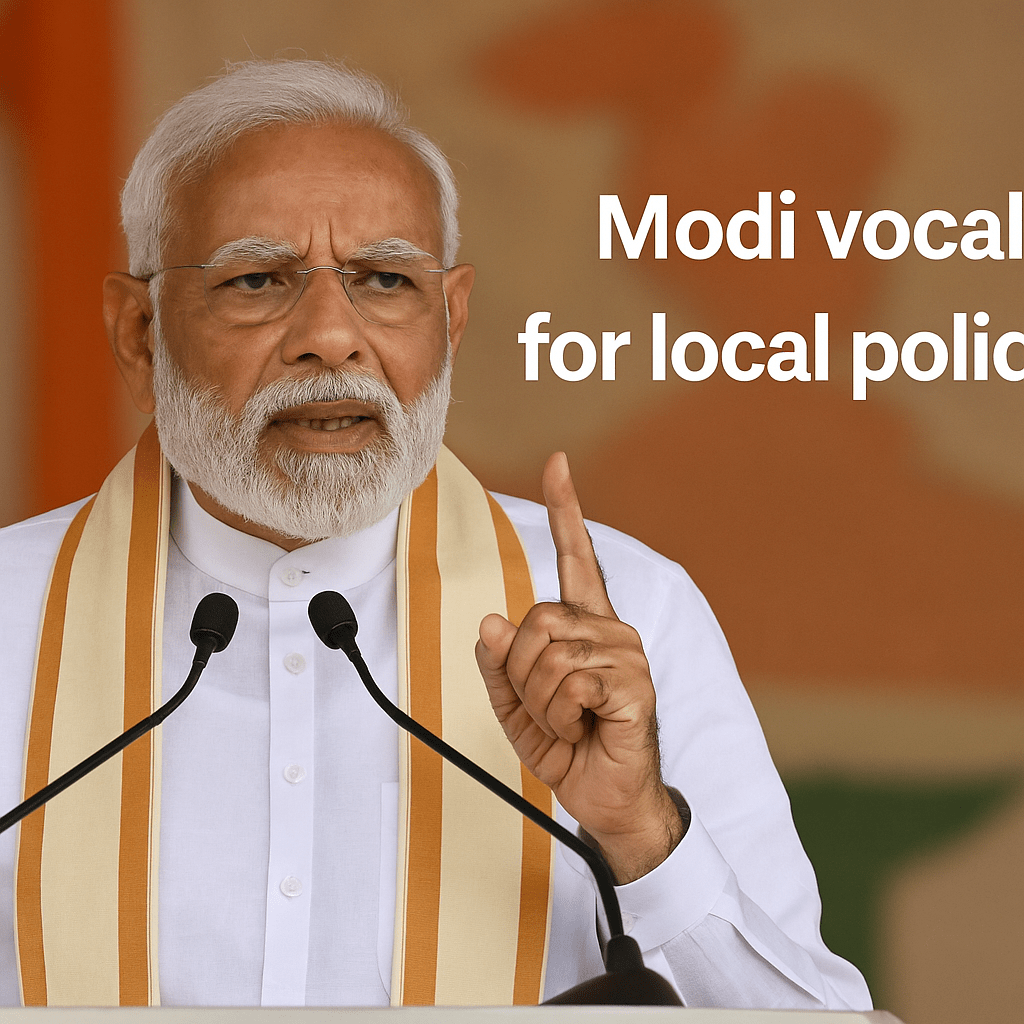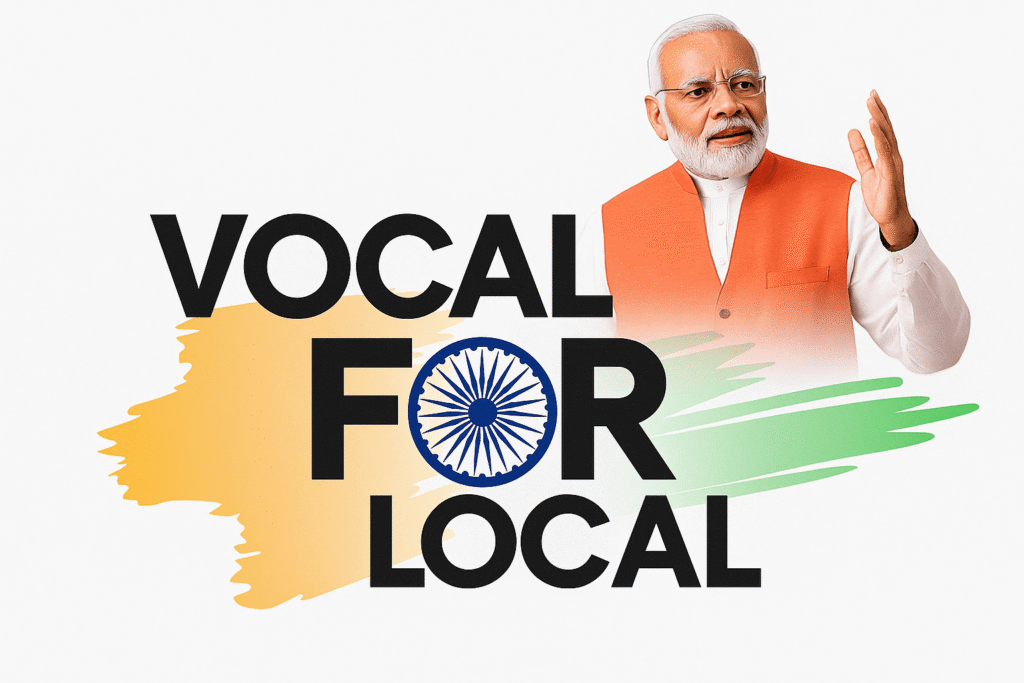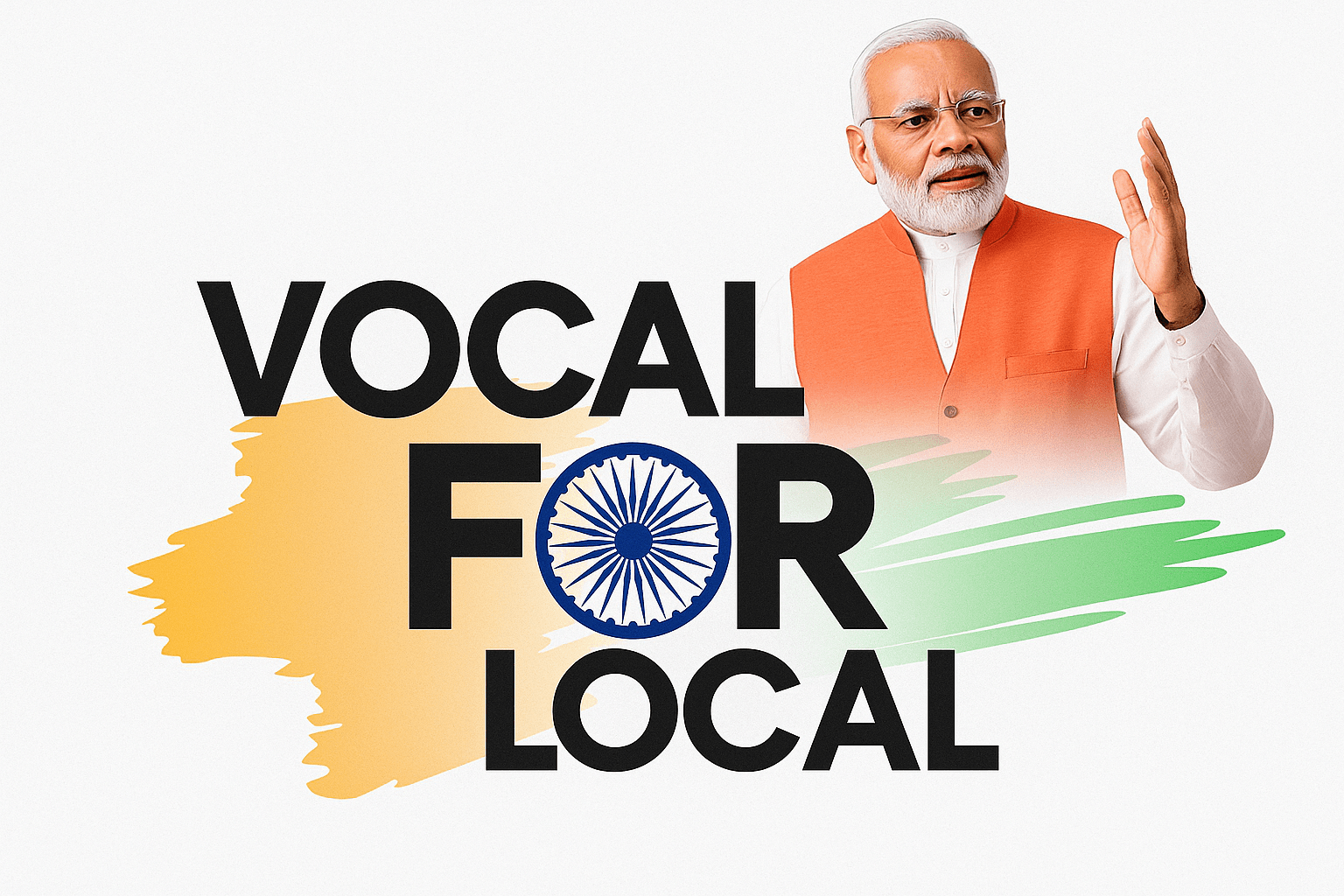|
Getting your Trinity Audio player ready... |

Amid global trade disruptions and rising protectionism, the Modi vocal for local policy has taken center stage in India’s economic strategy. In a powerful address in Varanasi, Prime Minister Narendra Modi called on citizens to embrace local products, underscoring India’s commitment to economic self-sufficiency. This renewed focus comes just days after Trump’s India tariff news stirred concerns about the future of Indian exports to the US.
Rather than reacting with alarm, PM Modi responded with bold economic resolve. He turned adversity into opportunity, rallying the nation around the India self-reliance mission, encouraging consumers and businesses alike to support domestic manufacturing.
Modi Vocal for Local Policy: A Direct Response to Global Pressures
When former U.S. President Donald Trump slapped a 25% tariff on Indian exports, many expected India to retaliate diplomatically. Instead, PM Modi took a visionary route, promoting the Modi vocal for local policy as a grassroots economic movement.
“Our path forward,” Modi said, “depends on how much we trust our own strength, our own producers, and our own market. Buying Indian-made products is not just economics it’s patriotism in action.”
The message resonated deeply, not just with policymakers but also with ordinary citizens and business leaders. It reflects the larger objectives of the Atmanirbhar Bharat campaign, which seeks to make India a manufacturing powerhouse with a competitive edge on a worldwide scale.
Modi’s emphasis on indigenous products aligns perfectly with the Make in India initiative, launched earlier in his tenure. Together, these policies form a robust economic framework that supports jobs, encourages innovation, and reduces dependence on volatile global markets.
Make in India Gains Momentum as Tariff Tensions Rise

With Indian exports to the US under new pressure, Indian industries are pivoting. For the home market, small and medium-sized businesses (SMEs) are increasing production. Manufacturers are investing in better technology and quality control to meet rising local demand fueled by the Modi vocal for local policy and the broader India self-reliance mission.
“We’ve seen a spike in interest for locally made goods,” said Anil Jaiswal, a small manufacturer from Kanpur. “People are no longer just talking about ‘vocal for local’ they’re actually buying Indian products.”
This behavioral shift may mark the beginning of a long-term transformation in Indian consumer habits. When global supply chains falter, national resilience becomes not just desirable, but essential. The Modi economic policy 2025 vision reflects this truth with clarity and urgency.
Economic Sovereignty as a National Goal
The heart of the Modi vocal for local policy is the belief that economic sovereignty is as crucial as political independence. In today’s interconnected world, countries must balance global trade with local stability. By strengthening domestic industries, India ensures its growth is not held hostage by shifting international dynamics.
Moreover, this policy isn’t isolationist, it’s strategic. Modi has not rejected global trade but has emphasized strengthening India’s internal capabilities first. With the Atmanirbhar Bharat campaign and Make in India initiative, the goal is clear: build a strong India from the inside out, while still engaging competitively on the global stage.
Economists note that this approach is especially timely. “The world is entering an era of economic nationalism,” says Dr. Meera Sinha, a trade policy expert. “India’s proactive stance is wise and future-oriented. Instead of reacting to Trump’s tariffs with outrage, Modi is preparing India to thrive without external crutches.”
A People-Driven Economic Revolution
The success of the Modi vocal for local policy hinges not just on government action, but on citizen participation. Modi’s speeches stress that change begins in every household and every shopping decision.
“When we choose a product made by our own people, we are not just buying goods we are investing in our own future,” Modi declared.
This spirit of collective responsibility is what sets the policy apart. It’s not top-down; it’s grassroots. And as awareness grows, so does the economic potential of Indian entrepreneurs and workers. From handicraft artisans in Rajasthan to tech innovators in Bengaluru, the shift toward local consumption is empowering communities across the country.







